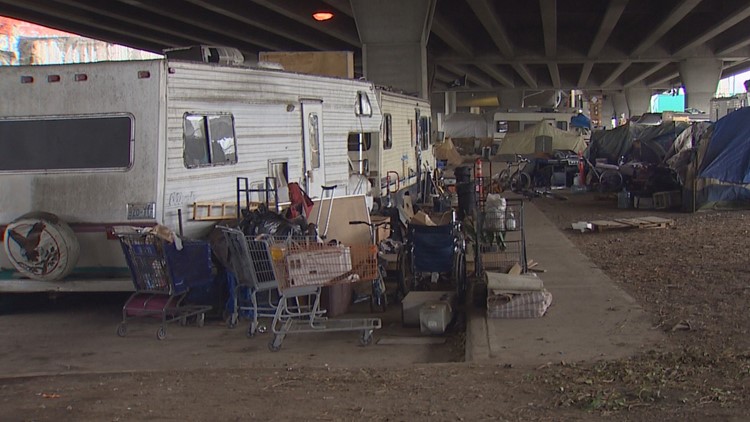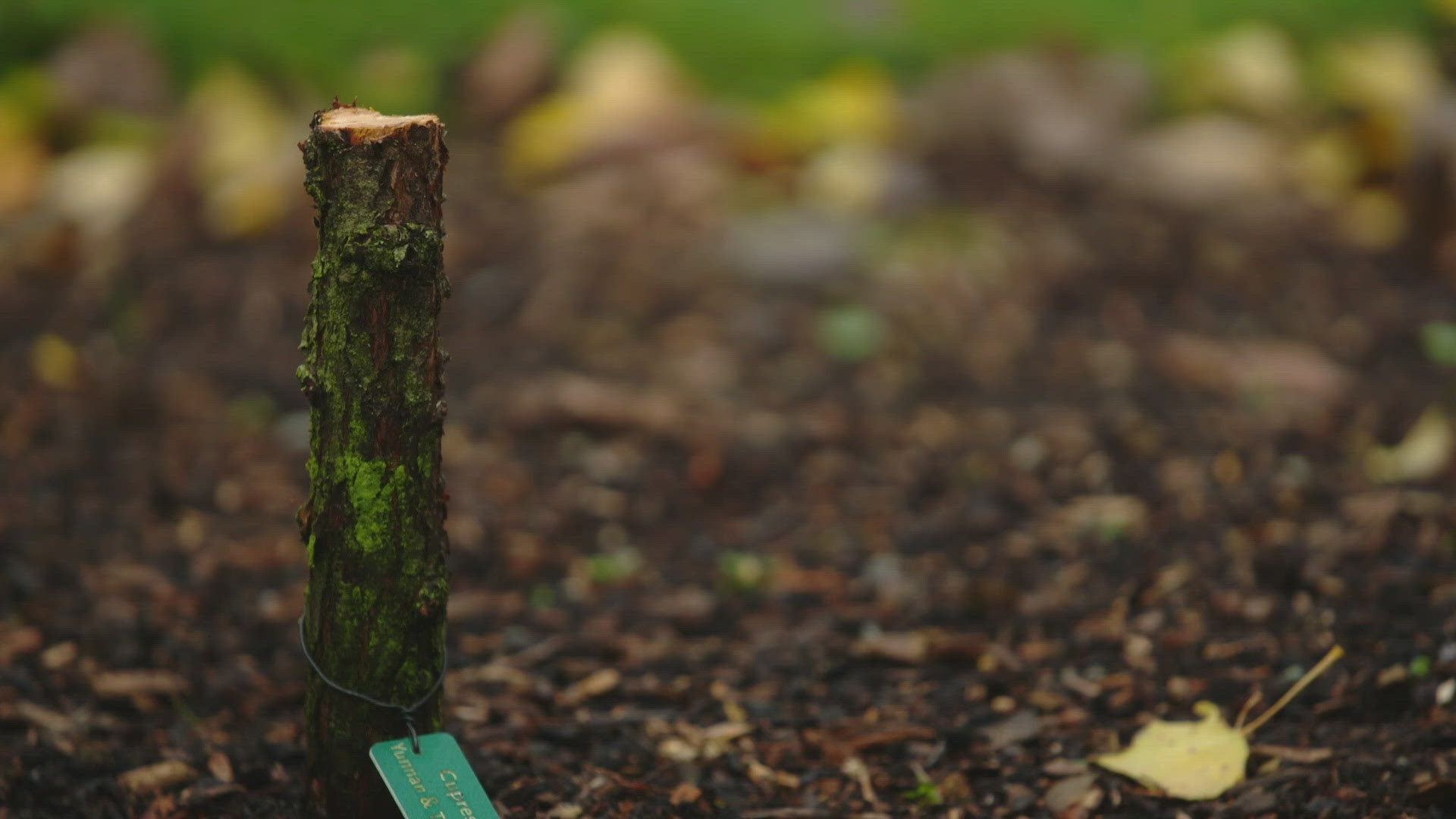King County's annual one-night count of homelessness found more than half of homeless people were sleeping outside versus in shelter, with a stark increase in the number of vehicle campers.
On Thursday, the county announced an overall 4 percent increase in the annual snapshot count of homeless people, to 12,112.
The count, conducted in January, found a worsening problem of people living in tent camps, cars, RVs and the street compared to last year. More than 70 percent of the county's unsheltered homeless people were in Seattle.
Kyra Zylstra, interim director of All Home, the county's homelessness coordinating agency, which organizes the yearly count, said compared to more rapid rises in homeless counts over the past five years, a slower 4 percent increase represents progress.
"It's not the kind of progress we all want to see," Zylstra told the Seattle Times. "But our performance data shows that the resources that we are investing in are housing people faster."
The increase in people living outside includes 370 residents of Seattle's six sanctioned tent camps. They are counted as "unsheltered" because federal guidelines do not recognize sanctioned tent camps as shelter.
The new homelessness figure points to some gains, including significant drops in the numbers of homeless veterans and families. Zylstra credited rapid rehousing, which provides rental assistance, with helping more people find stable housing.
Seattle Mayor Jenny Durkan said the results point toward a need for greater regional collaboration.
Overall, about two-thirds of homeless people in the county are men, and more than three-quarters lived in households without children. There were also signs of homelessness worsening outside of Seattle, with increases in people living outside in north and east King County.
The snapshot count, and the follow-up survey, also found a 28 percent spike in chronic homelessness, with significant rises among those 41 and older.
Dan Malone, director of DESC, Seattle's largest provider of services for chronically homeless people, said the rise in chronic homelessness was not surprising.
"It stands to reason that more people are homeless for longer periods of time than before, given that housing is so expensive and it's hard to exit homelessness," he said.
Eve Renshaw, who says she'll be homeless for three months after the death of her husband, says she's been struggling to find shelter space. "If these people who are out here, would stop building all these huge buildings, and actually put money in low income housing or shelters, we would be okay. People who need homes would be okay," she said. "For right now, it would be nice to have a home, and right now, I have nothing, literally, nothing."



